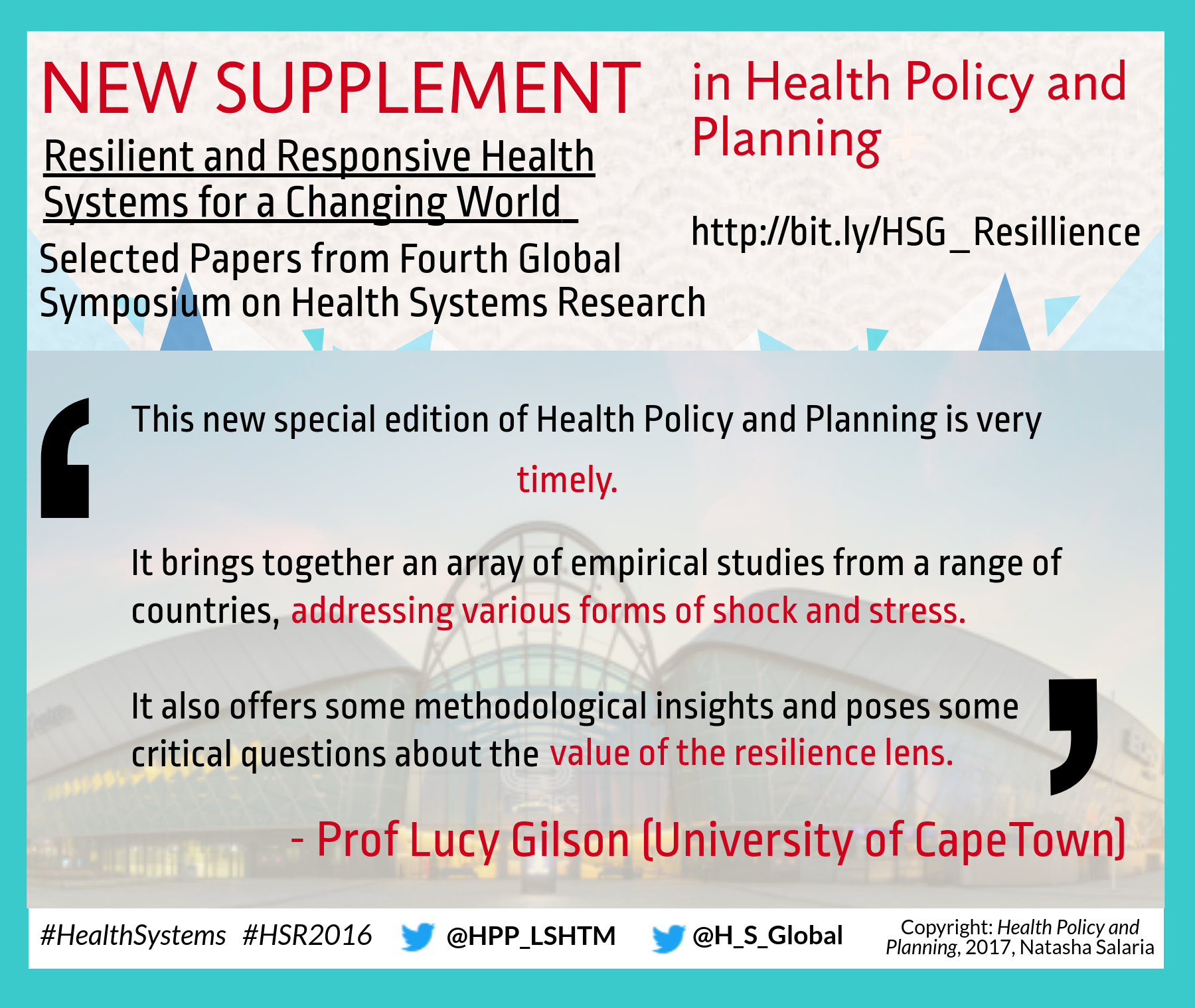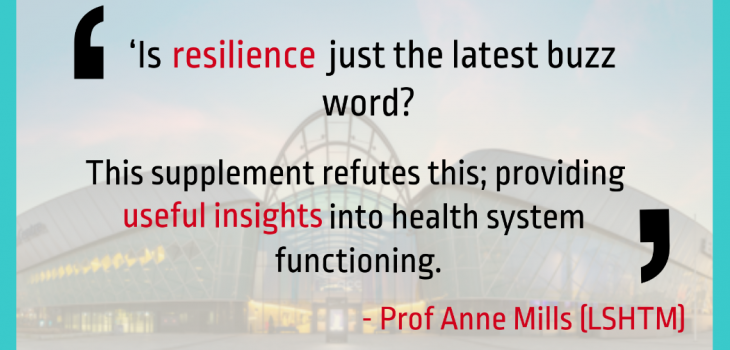By Lucy Gilson (University of Cape Town) and Natasha Salaria (LSHTM)
Our world is an uncertain place, in which change, challenge, but also opportunity, are constant features. Well known recent health crises have led the health policy and systems research community to consider, specifically, the value of resilience lens on health systems in the face of such disruption. Yet this focus on resilience is only the current turn within the continuing debates about health system development and reform, more generally. So, what does a focus on resilience add to those debates, if anything, and what does it overlook or ignore? Does it offer new ideas for how different system actors – from governments and donors to civil society organisations and front line health workers – might take action to enable health system development?
Unfortunately, there is still too little empirical work on resilience and health systems fully to consider these questions.
So, this new special edition of Health Policy and Planning is very timely. It brings together an array of empirical studies from a range of countries, addressing various forms of shock and stress. It also offers some methodological insights and poses some critical questions about the value of the resilience lens.

How did this supplement arise?
The Fourth Global Symposium on Health Systems Research, owned by Health Systems Global (HSG) and organized in partnership with the Alliance for Health Policy and Systems Research (AHPSR) and Canadian Society for International Health (CSIH) took place between 14-16 November 2016 with the theme of Resilient and Responsive Health Systems in a Changing World.
There were a total of 53 organised and 74 satellite and skills-building sessions, 248 oral and 362 poster presentations, and 155 e-posters published on the website. Discussions arose after the conference between Health Systems Global and Health Policy and Planning about a willingness to distil this work into a supplement demonstrating the abundance of research presented at the Symposium. That’s exactly what we’ve done jointly a year on from the Symposium, with the financial support from Canadian International Development Research Centre (IDRC) (Grant No.: 108257-002) ensuring at least 75% of the articles contained a corresponding author from a low- and/or middle-income country.
This supplement consists of:
- 11 papers presenting original research and two commentaries, accompanied by 1 Editorial
- 8 papers addressing aspects of resilience, and 3 of responsiveness
- Insights from 12 countries, ranging from the most vulnerable (e.g. DRC, Sierra Leone) to the relatively more stable and better off (e.g. Uganda, South Africa, Bangladesh), and providing evidence from two continents – Africa and Asia
- Studies relating to various aspects of health system functioning, especially health workers, but also use of information technology, management information systems, decentralisation of management, and outcomes of services
- Papers testing methodological innovations and exploring conceptual and framing issues
Edited by co-editor of Health Policy and Planning, Dr Virginia Wiseman, the collection of papers in this supplement emphasises the strength of health systems research, provides useful information for local and global decision makers about resilience and responsiveness, and indicates areas for further development of the knowledge base of health systems research.
ARTICLES IN THE SUPPLEMENT:
- Editorial: Resilient and Responsive Health Systems in a Changing World
- Commentary: Interrogating resilience in health systems development
- Commentary: Reframing the concept of resilience in health systems strengthening
- Original manuscript: A comparable yardstick: adjusting for education bias in South African health system responsiveness ratings
- Original manuscript: Beyond the crisis: Did the Ebola epidemic improve resilience of Liberia’s health system?
- Original manuscript: Counting indirect crisis-related deaths in the context of a low-resilience health system: the case of maternal and neonatal health during the Ebola epidemic in Sierra Leone
- Original manuscript: Decision space for health workforce management in decentralised settings: action research in Uganda
- Original manuscript: How do health workers experience and cope with shocks? Learning from four fragile and conflict-affected health systems in Uganda, Sierra Leone, Zimbabwe and Cambodia
- Original manuscript: How introduction of a human resources information system helped the Democratic Republic of Congo to mobilize domestic resources for an improved health workforce
- Original manuscript: Toward improved health systems responsiveness: A cross-sectional study of malaria endemicity and readiness to deliver services in Kenya, Namibia and Senegal
- Original manuscript: Use of Information and Communication Technologies by individuals and communities to fulfil self-identified health needs in the 2015 Nepal Earthquake and their impact on health systems resilience
- Original manuscript: Who Are More Responsive? Mixed-methods Comparison of Public and Private Sector Physicians in Rural Bangladesh











